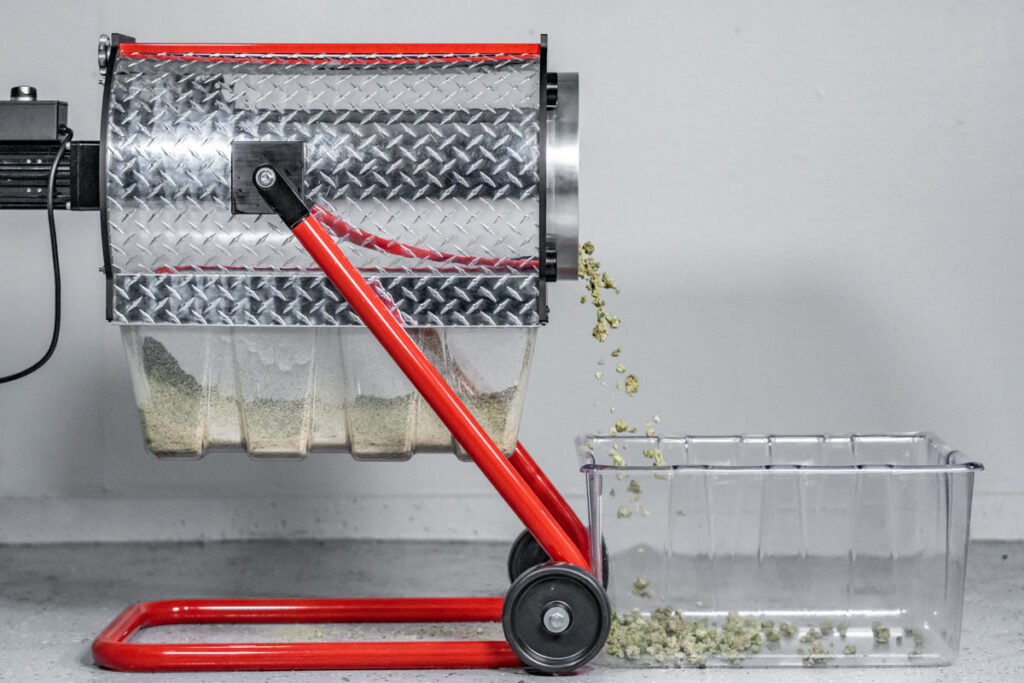Expert Tips on Starting A Cannabusiness

Interested in starting a cannabis business? With cannabis legalization in many states and countries, the cannabis industry is booming. However, starting a cannabis company is not as simple as opening any other business.
The regulations and laws surrounding the industry can be complex and vary depending on the location. In this blog, we will guide you through starting a cannabis business, from researching and planning to obtaining a business license, securing funding, and setting up operations. Whether you’re interested in opening a cultivation facility, dispensary, or processing operation, we’ve got you covered. Let’s dive in and learn how to turn your passion for cannabis into a successful business.

With the legalization of both medicinal and recreational cannabis slowly moving nationwide, there’s never been a better time to establish a cannabis business. We know what it takes to start and maintain a successful one. We’re now global leaders in cannabis processing equipment, but we started our business by designing one machine for friends to trim cannabis at an industrial scale. Considering that future industry projections foresee the global cannabis market to be worth $51 billion by 2025 (up from $36.6 billion in 2022), now’s the time to start thinking about how to start a cannabusiness.
Whether you like the idea of opening a medical cannabis dispensary, creating a line of edibles, or turning your backyard grow into a commercial endeavor, there’s plenty of opportunity to start a successful business in the legal marijuana market. Whatever path you decide on, creating a business plan is key.
Decide What Type Of Business You Want To Start
When it comes to the cannabis industry, there’s no shortage of opportunities. It’s important you choose something you’re passionate about rather than what you think might make you the most money. Knowing your niche is the first step.
The following are a few of the most common types of cannabis businesses:
- Cultivation
A cannabis cultivation business involves the growing process. Cannabis cultivation can be done on a small, medium, or large scale indoors (in a warehouse or other building) or outdoors (with or without a greenhouse). Once plants are harvested, the raw plant material will be further processed or sold to dispensaries or extraction companies.
- Extraction
The cannabis concentrate market is growing rapidly, making a cannabis extraction business a viable opportunity for budding entrepreneurs. Cannabis extraction involves extracting cannabinoids from hemp or marijuana plants to produce a raw oil, which can then be sold to manufacturers to make tinctures, concentrates, edibles, and other cannabis products.
- Manufacturing
Creating cannabis products is another option for those interested in starting a cannabusiness. A manufacturing business in the cannabis industry can produce a wide range of products, including vapes, edibles, topicals, tinctures, etc. These products can then be sold to a cannabis dispensary or various brands (typically under a white or private label).
- Cannabis Retail

A cannabis dispensary would be considered retail. These businesses sell things like flower, oil, edibles, prerolls, and topicals to cannabis consumers. Depending on the state, there are purchase limits. Additionally, most states track the purchase of adult-use and medical cannabis products, which requires meticulous recordkeeping. Any potential cannabis retailer should look into these regulations prior to opening.
- Tourism
Cannabis tourism is becoming increasingly popular in recreationally friendly countries and states. Guided cannabis tours to dispensaries and grow ops, cannabis-friendly vacation rentals, bud and breakfasts, cannabis hotels, creative cannabis workshops, and cannabis dining establishments are all examples of tourism opportunities in the legal cannabis space.
Do Your Research
Once you’ve decided on what business you’d like to start, the next step of how to start a cannabusiness is doing research prior to making a business plan. Regardless of which type of business you’re interested in, it’s vital to engage in some heavy market research before you begin.
Who are the most successful brands or individuals in your chosen field? Find out what your competitors are doing and who is doing it best. Once you’ve established this, you might think about how you could do it better.
You’ll also want to learn everything you can about your target audience. Who is your customer? Ultimately, it’s your customer base that will help you achieve the success you desire. What can you provide that will get their attention and keep them interested in what you offer? Writing out a detailed client profile is fundamental if you want your business to succeed.
Cannabis law is complex, and legislation varies from state to state (and in different countries). As a business owner, it’s important to note that cultivation laws differ from manufacturing or extraction laws. Be sure to learn the laws surrounding your ideal cannabusiness; it can save you a lot of unnecessary legal issues in the long run.
Banking is also a big thing to consider in the cannabis industry. While getting a loan for a regular business is relatively easy, cannabis is a bit different. Under federal law, cannabis is still illegal, and banks are mandated to follow federal law. Many cannabusinesses seek financing from angel investors or venture capitalists. There are also lending companies that cater to cannabis businesses. Keep in mind that many banks are also reluctant to offer checking or credit accounts to businesses that work with cannabis, and it may take time to find a bank that will work with you.
Make A Business Plan

A solid business plan will help you start, grow, manage, and succeed in your chosen field in the cannabis industry. Creating one isn’t as difficult as you might think it is. With some strategic planning, you can outline everything you need to do for the next three to five years that will help you reach your target audience, grow, and make money.
If you want to know how to start a cannabusiness, the following are a few key things to include in a business plan:
- Summary
The summary of your cannabis business plan should be two to five pages and include your mission statement, location, goals, executive team members, potential financial partners, existing equity and resources, an overview of your operation, and projected financial gain.
- Company Details
The company details section of your business plan includes your business’s factual stats, such as your business name, address, contact information, facility information, size, number of employees, and any current licenses you hold or need to attain.
- Financial Goals / Funding
The financial goals and funding will include your projected financial goals (2-5 years), current funding sources, and lenders you plan to approach.
- Market Analysis
You should include the market analysis for whatever type of cannabusiness you decide on. This will ultimately improve your likelihood of succeeding in an otherwise competitive industry. Here you’ll include the details of your current and future competitors while identifying market trends and how you’ll satisfy or exceed consumer demand.
- Marketing / Sales Strategy
You must have a marketing and sales strategy. In addition to branding and advertising, you’ll want to line up distribution channels and remain competitive. Your marketing and sales strategy typically includes predicted distribution channels and established partnerships, advertising, promotion, social media strategies, outreach methods, sales strategies, and detailed market analysis. You’ll also want to include a SWOT analysis (strengths/weaknesses/opportunities/threats), a framework used to evaluate a business’s position in the competitive market and develop strategic planning.
It’s important to understand that writing a cannabis cultivation business plan will be much different than creating one for other cannabis business models. If you plan on cultivating cannabis for a living, keep in mind that it can be difficult to make financial projections. The market fluctuates wildly, and overall yields can be unpredictable.
While fixed expenses like rent or mortgage payments, state and municipal taxes, licenses, and salaries all occur predictably each month, variable expenses are different. Variable costs include hourly labor, utility payments, nutrient needs, and growing mediums. Cultivation regulations also differ from retail or other cannabis business regulations, which is vital to understand when creating a cannabis cultivation business plan.
Specific Planning
Once your initial business plan is complete, the next step is to plan specifics. This refers to the specific planning necessary to make your business a success.
Things to keep in mind when it comes time for specific business planning:
- Regulations
Depending on the jurisdiction, there are different laws and specific requirements. As a cannabis entrepreneur, it is important to look into what type of cannabis license is needed to grow, process, distribute, or sell cannabis goods. (There is also a license fee that will need to be taken into consideration.) Each cannabis business must comply with all regulations and laws specific to its state or country. Keep in mind that cannabis industry legislation is constantly evolving, and it’s essential to stay informed and up-to-date about any changes in laws and regulations.
- Funding / Loans / Investors

Securing funding to start and operate your business is an imperative part of the process. If you don’t have the capital to spend yourself, note where you’ll source funding, loans you’re approved for or plan to apply for, and any investors who will back up your business. Investors, loans, and crowdfunding are common methods of securing funding to start a cannabusiness.
- Payment Processing
Payment processing in the cannabis market can be complicated. Payment processing is one of the most significant issues startup cannabis businesses face. The legality of payment processing will vary from state to state, and there are different payment processing options available for different types of businesses. Research the types of processing available to you for a cannabis establishment in your area.
- Insurance
Cannabis business insurance is an insurance policy that considers the risks of various aspects of the cannabis industry. Theft, crop failure, injuries in the workplace, and property damage are all examples of reasons why you want to insure your business. Cannabis cultivation businesses, extractors, manufacturers, dispensaries, delivery services, distributors, and retail shops that cater to cannabis goods are all examples of businesses that can benefit from insurance.
- Growth Strategy
Your growth strategy will include how you plan to grow your business by increasing sales of your services or products. Not only will your specific growth strategy include how your revenue will increase, but it will also show others that you have a solid plan for attracting new customers and expanding to new markets. Ultimately, your growth strategy will show how this plan will increase sales.
Obtain Cannabis Licensing
Before starting your endeavor, you must obtain the correct license type to operate your cannabis business. In order to get a cannabis business license, you may need to submit your business plan, pay the necessary fees, and undergo a background check.
Find a Location
Another important step in starting your cannabusiness is finding a suitable location while considering zoning laws and local regulations. In some areas, commercial cannabis activity must be a minimum distance or greater from schools and other public places.
Set Up Operations
Once you’ve found the ideal location and acquired your business license and the necessary permits, it’s time to set up operations. This is the time to establish the infrastructure and equipment necessary to grow, process, or sell cannabis products. You may need to obtain more permits, build out your facility, and purchase equipment.
Hiring

The people you hire will speak volumes about your business’s success. Hiring the right people for your cannabis business is one of the most imperative parts of starting a cannabusiness. No matter what type of business you plan to start, hiring individuals interested in cannabis is a must.
The staff you consider should have industry experience. If you’re starting a grow op, for example, you’ll definitely want to hire people who know how to grow cannabis well. Your retail staff should enjoy working with people and have the knowledge to answer any cannabis-oriented questions that come up with your customers.
Ultimately, you’re going to succeed by hiring people who are passionate about the plant. You may find that someone without any interest in cannabis can be a good employee, but someone passionate about cannabis will most likely be a better fit. While you might have to cycle through a few employees before finding your dream team, knowing what to look for (and what to avoid) when hiring is key when learning how to start a cannabusiness.
Last Thoughts on How to Start a Cannabusiness

With marijuana legalization continuing to expand across the globe, there’s truly never been a better time to join the legal cannabis industry. Whether you want to turn your passion for the plant into a business endeavor or you’re an entrepreneur interested in being a part of the multi-billion dollar industry, knowing how to start a cannabusiness successfully is key.
At Triminator, we know exactly what it takes to become successful in the cannabis market. We’ve helped countless companies get off the ground, providing the equipment they need to ensure their success in the industry—such as trimming machines for cultivators or rosin presses for manufacturers—and sharing information and additional resources through our blog and podcast.
We invite you to contact us today to learn more about how we can help.
Like what you read?
Get more insider industry knowledge sent right to your inbox
"*" indicates required fields